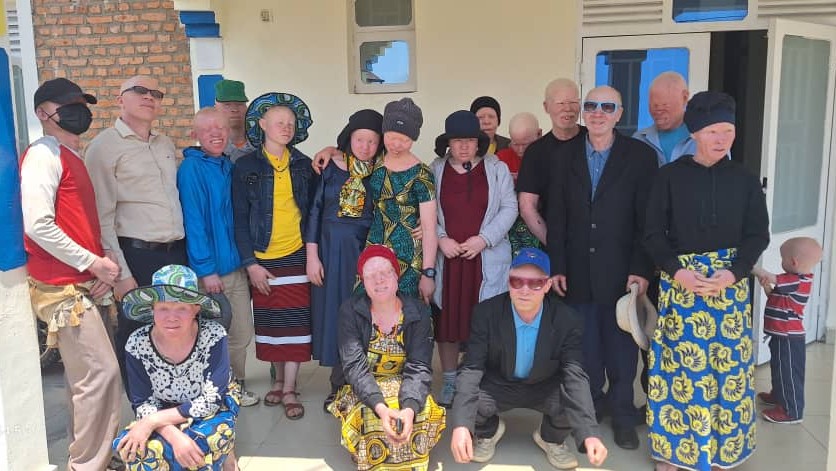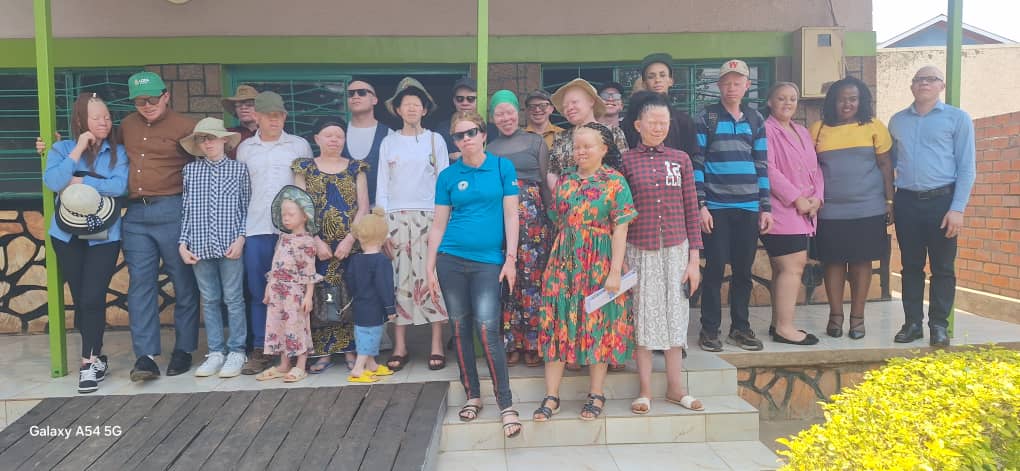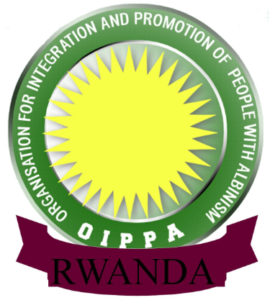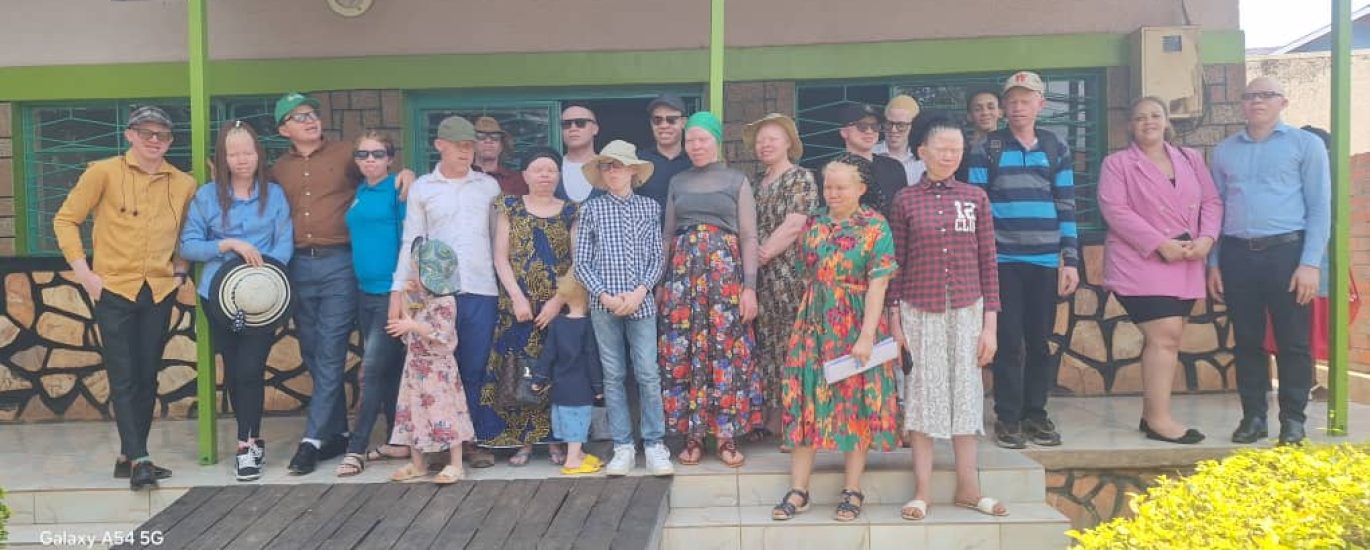
Rwanda is experiencing increasing climate variability, characterized by rising temperatures and unpredictable rainfall patterns. These climatic changes have far-reaching consequences, particularly for vulnerable populations such as persons with albinism. The absence of melanin makes individuals with albinism highly sensitive to ultraviolet (UV) radiation, significantly increasing their risk of developing skin cancer. As the intensity of the sun’s rays continues to rise due to climate change, the need for targeted interventions to protect persons with albinism has become more pressing than ever.
Beyond health risks, persons with albinism often face social stigma, economic hardships and limited access to healthcare resources. Many are unaware of the necessary preventive measures to reduce the risk of skin cancer, and those who are informed often struggle to access protective materials such as sunscreen, hats, and UV-protective clothing. Recognizing these challenges, the Organization for the Integration and Promotion of People with Albinism (OIPPA) took a proactive step by developing a comprehensive educational handbook. This handbook, titled Causes of Skin Cancer, Symptoms, Prevention Measures and Treatment Processes, serves as a vital resource in empowering persons with albinism about the importance of skin cancer prevention.
To ensure the effective dissemination of this critical information, OIPPA organized a series of workshops across four districts in Rwanda. These workshops were designed to equip individuals with albinism with the knowledge and tools necessary to recognize, prevent and manage skin cancer effectively. The initiative sought not only to educate but also to foster a supportive community where persons with albinism could share their experiences, learn from one another and advocate for improved healthcare access. Through this initiative, OIPPA aims to create lasting change in the fight against skin cancer among persons with albinism in Rwanda.
The workshops aimed to:
- Discuss the root causes, symptoms, and preventive measures of skin cancer.
- Educate participants on the effects of sun exposure on individuals with albinism.
- Promote proactive health and protection strategies among persons with albinism.
Workshops for Skin Cancer Prevention
The workshops were held in four different locations, each tailored to address the unique needs of participants:
- Rutsiro District (February 26, 2025): The interactive session allowed attendees to share personal experiences and challenges related to sun exposure. Practical demonstrations on proper sunscreen application and protective clothing use were conducted. Feedback from participants indicated a significant increase in awareness and commitment to adopting preventive measures.
- Musanze District (February 27, 2025): Participants focused on identifying early signs of skin cancer and discussing strategies for timely medical assistance. The presence of representatives from the District Joint Action Development Forum (DJAF) and Disability Mainstreaming Officers (DMOs) facilitated discussions on community support mechanisms and resources available to persons with albinism.
- Kigali City (March 4, 2025): The largest workshop, with 60 participants, included persons with albinism as well as parents of children with albinism from Gasabo, Nyarugenge and Kicukiro districts. Discussions centered on the prevention of skin cancer and the supply chain for sunscreen. Government representatives reiterated the importance of economic empowerment alongside health protection.
Workshop Content and Activities
Each workshop was structured to provide comprehensive information and actively engage participants through interactive sessions. The key topics covered included:
- Understanding Skin Cancer and Its Root Causes: Participants learned about skin cancer, its definition and contributing factors, with a focus on the increased vulnerability of individuals with albinism.
- Symptoms of Skin Cancer: The sessions detailed common signs and symptoms, emphasizing early detection for effective treatment.
- Effects of Skin Cancer: The economic, social and health impacts of skin cancer were discussed to underscore the significance of preventive measures.
- Prevention Strategies: Participants were educated on various protective measures, including sunscreen application, wearing protective clothing, performing regular skin screenings and avoiding sun exposure during peak hours.
- Impact of Sun Exposure on Persons with Albinism: The unique challenges faced by individuals with albinism concerning sun exposure were addressed, along with tailored advice on risk mitigation.
The workshops on skin cancer prevention for persons with albinism marked a significant step toward empowering a vulnerable community in Rwanda. By providing essential knowledge and resources, the initiative not only educated participants but also fostered a call for continued collaboration between government institutions, healthcare providers, and community organizations. Moving forward, sustained efforts and strategic partnerships will be crucial in safeguarding the health and well-being of persons with albinism amidst the challenges posed by climate change.



